Are you or someone you know struggling with substance abuse? Navigating the path to recovery can be overwhelming, but having the right support can make all the difference. In this guide, we'll explore various resources, strategies, and personal stories that highlight the importance of connection and understanding in the recovery journey. Join us as we delve deeper into effective ways to foster healing and resilienceâread on to learn more!
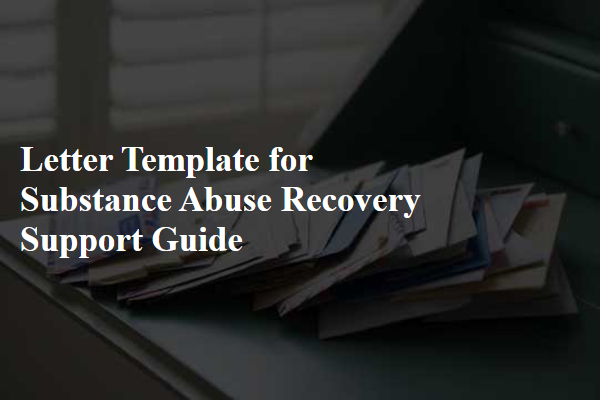
Empathy and Understanding
Empathy and understanding play crucial roles in the journey of substance abuse recovery, particularly in support settings such as group therapy sessions or individual counseling. Building connections fosters trust among participants, helping to create an environment where stories of struggle and hope can be shared openly. In settings like community recovery centers, empathy becomes a vital tool to facilitate discussions about experiences with substances like opioids or alcohol, which can have profound personal impacts. Understanding the emotional and psychological challenges, such as anxiety or depression, that accompany addiction can guide support methods effectively. Additionally, support groups like Narcotics Anonymous (NA) or Alcoholics Anonymous (AA) provide a platform for individuals to recount their experiences, receive compassion, and develop a sense of belonging, which are key components in long-term recovery success.
Personalized Goals
Creating personalized goals is essential for substance abuse recovery, promoting individual accountability and progress. These goals should be specific, measurable, achievable, relevant, and time-bound (SMART). For instance, a person may aim to attend a minimum of three support group meetings per week, such as Alcoholics Anonymous, within the next month. Tracking progress can involve maintaining a journal documenting successes and challenges faced during recovery. Additionally, incorporating healthy routines, such as engaging in regular exercise (30 minutes of physical activity five times a week) and practicing mindfulness through meditation sessions (at least 10 minutes daily), can significantly enhance emotional resilience. Establishing a supportive network of friends, family, and mentors is crucial, fostering connections that encourage ongoing commitment to personal recovery objectives.
Confidentiality Assurance
Substance abuse recovery support environments emphasize confidentiality to ensure individuals feel safe discussing personal challenges. Confidentiality in these settings includes safeguarding information about participants, such as names, histories, and specific struggles with addiction. Recovery programs, such as Alcoholics Anonymous (AA) and Narcotics Anonymous (NA), strictly adhere to guidelines protecting member privacy. Additionally, therapy sessions conducted by licensed professionals focus on building trust, allowing individuals to share their experiences without fear of judgment or exposure. Legal provisions, including the Health Insurance Portability and Accountability Act (HIPAA), reinforce the importance of confidentiality in healthcare-related recovery support, protecting clients' rights and fostering a supportive community for healing and growth.
Resource Availability
Navigating substance abuse recovery often involves accessing a multitude of resources tailored for support and healing. Community organizations like Alcoholics Anonymous (AA), with meetings held in numerous locations, offer peer support and shared experiences. Additionally, dedicated treatment centers such as Serenity Care in Los Angeles provide medically supervised detox programs designed for safety and effectiveness. Educational materials, including workbooks and online courses from the National Institute on Drug Abuse (NIDA), furnish vital knowledge for understanding addiction and recovery processes. Furthermore, hotline services, available 24/7, such as the Substance Abuse and Mental Health Services Administration (SAMHSA) helpline, offer confidential guidance and direct referrals to local treatment facilities, ensuring individuals can find the necessary support in their recovery journey.
Encouragement and Positivity
Substance abuse recovery requires immense strength, resilience, and a supportive environment. Individuals battling addiction often face numerous obstacles on their journey to sobriety, where encouragement can play a pivotal role. Support groups, like Alcoholics Anonymous (AA) or Narcotics Anonymous (NA), provide a safe space for sharing experiences and receiving motivation from peers who understand the struggle. Positive affirmations, such as "You are not alone," can foster a sense of hope and belonging. Meanwhile, engaging in healthy activities--such as yoga classes at local studios or art therapy programs--can help individuals rebuild self-esteem while promoting mental and physical wellness. Recognizing milestones, no matter how small, reinforces the progress made, propelling individuals toward a brighter, healthier future.
Letter Template For Substance Abuse Recovery Support Guide Samples
Letter template of encouragement for substance abuse recovery support group leaders
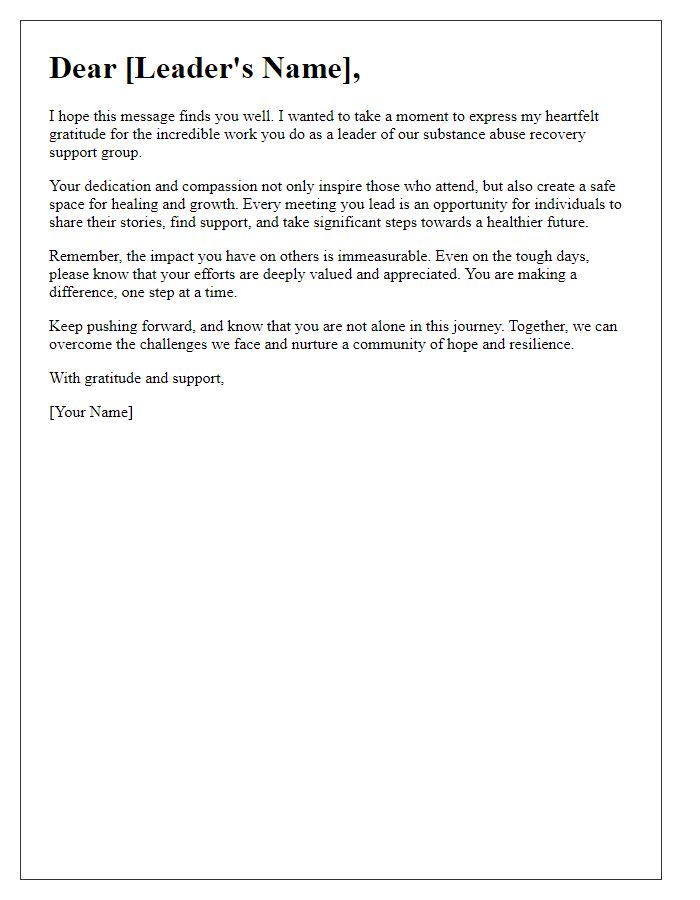
Letter template of acknowledgment for substance abuse recovery milestones
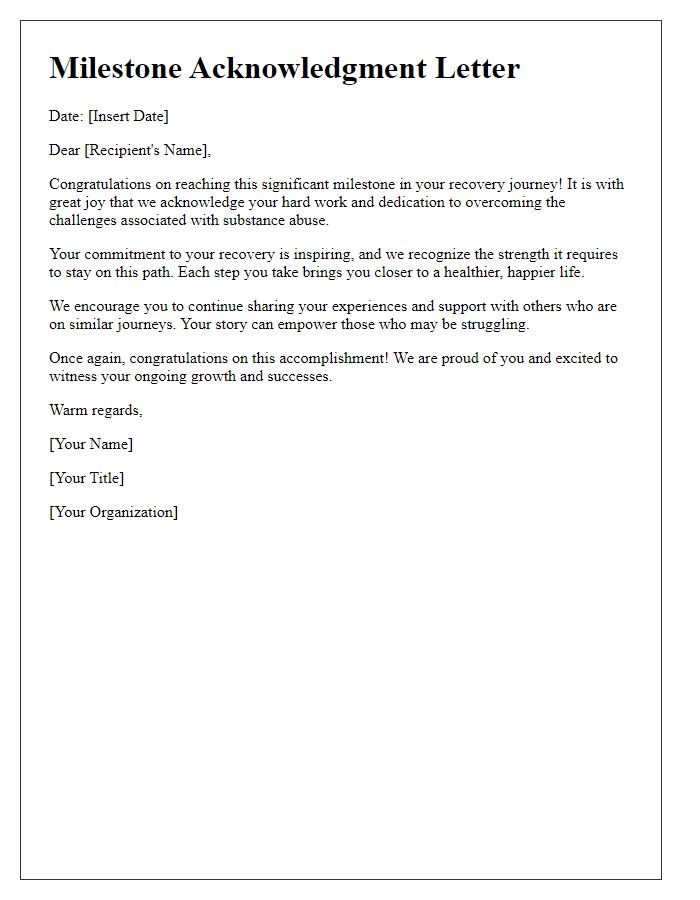
Letter template of advice for friends supporting someone in substance abuse recovery
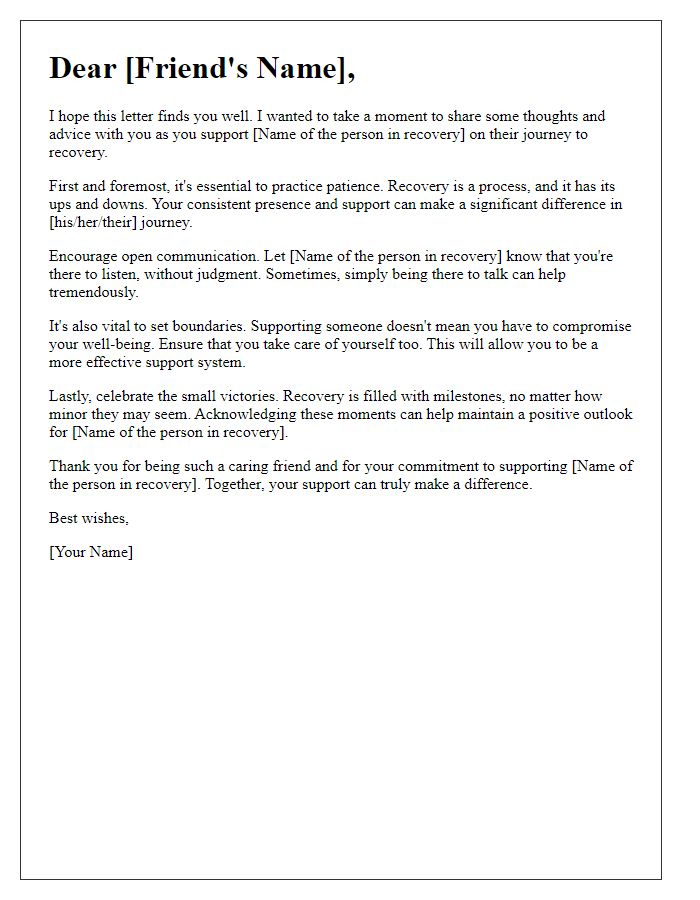
Letter template of outreach for substance abuse recovery community events
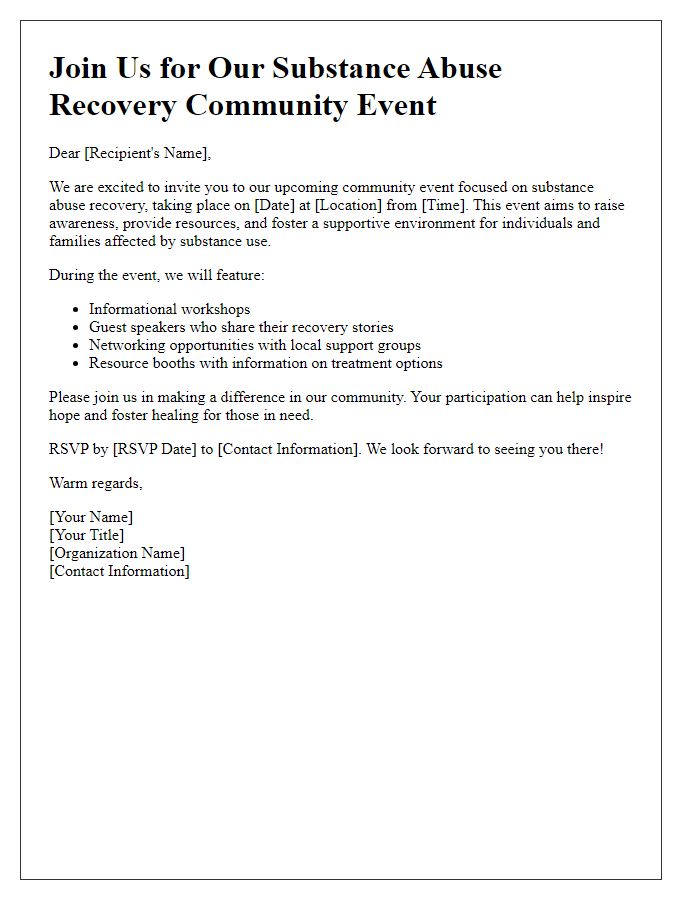
Letter template of commitment for long-term substance abuse recovery plans
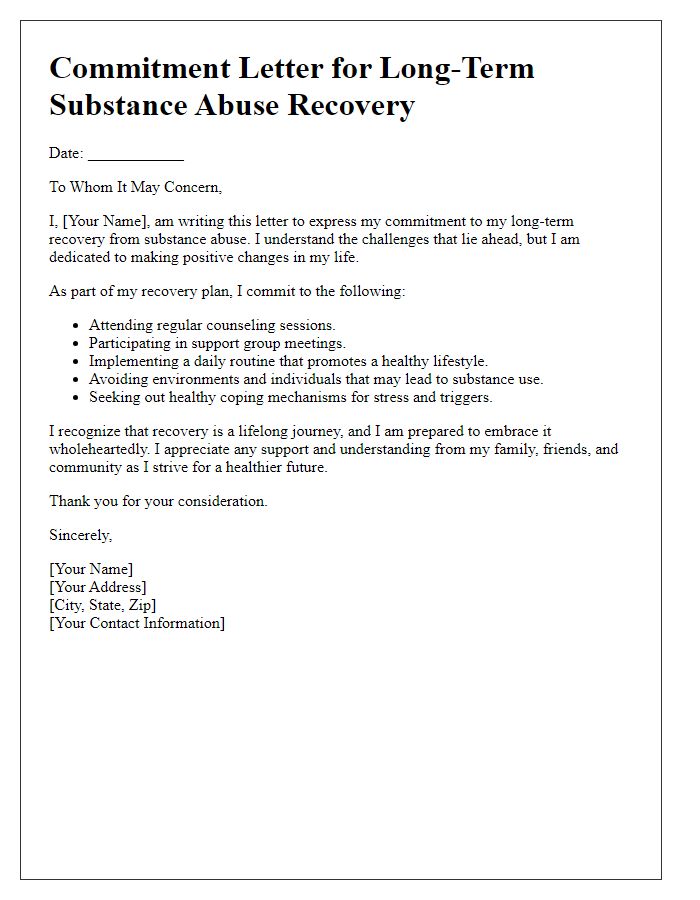

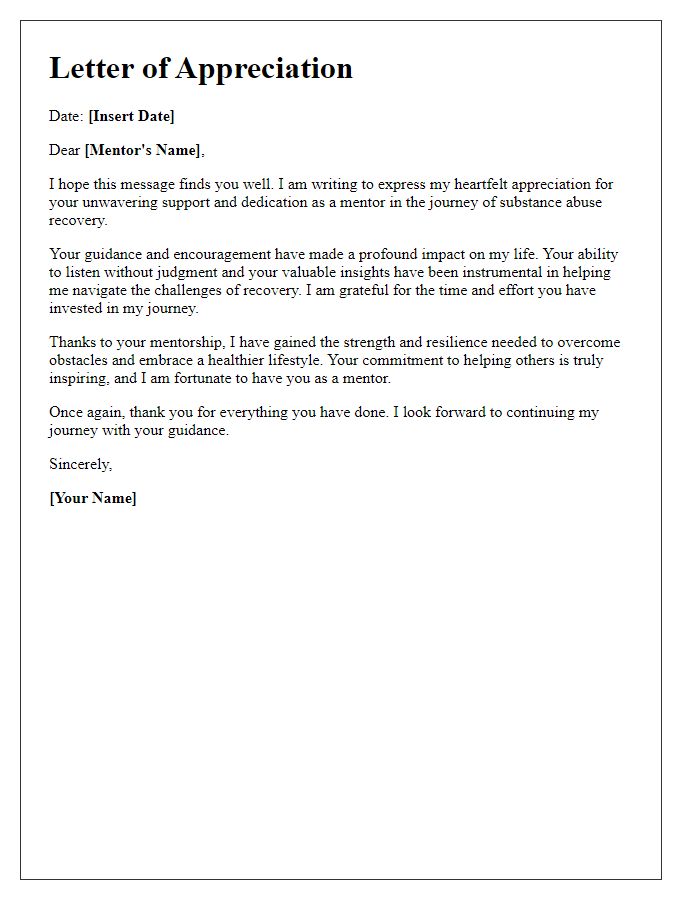
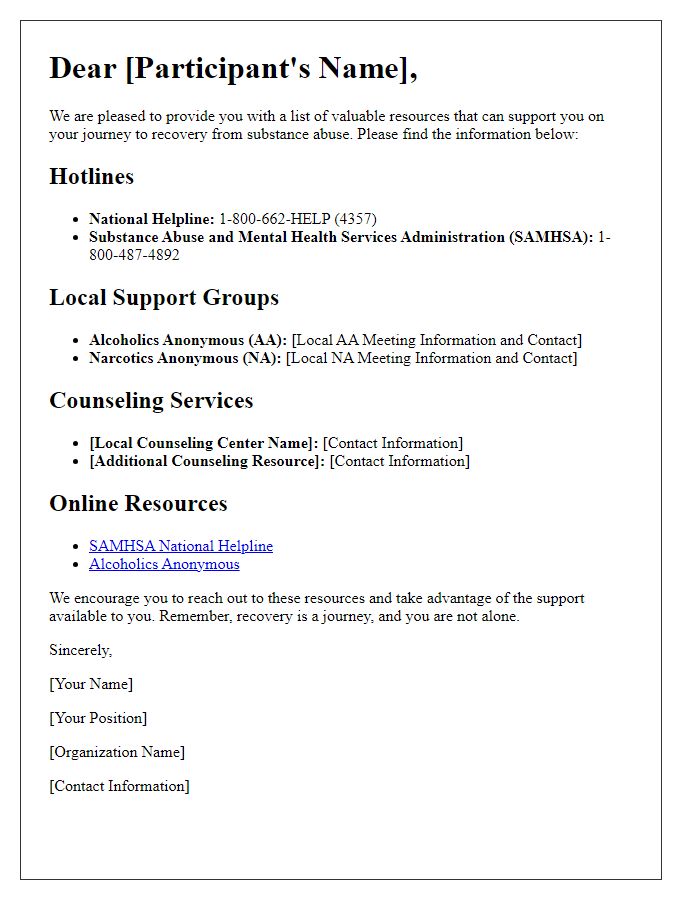
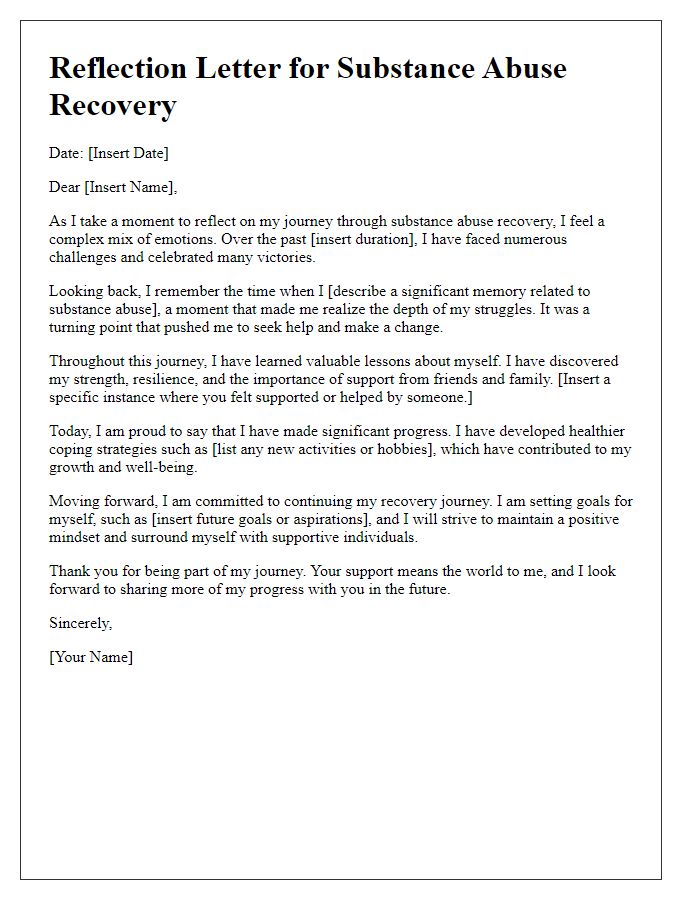
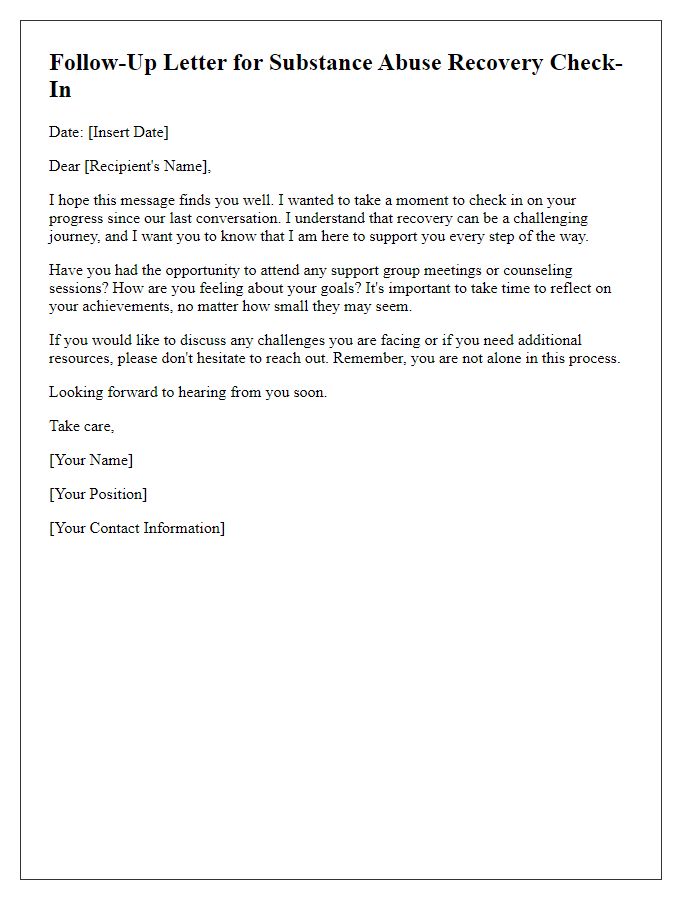
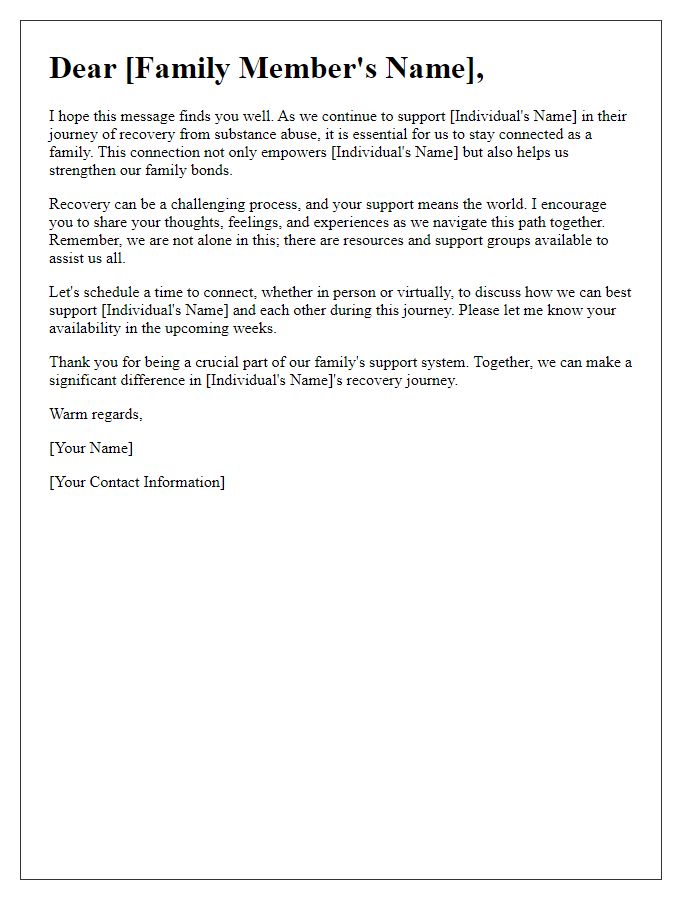


Comments